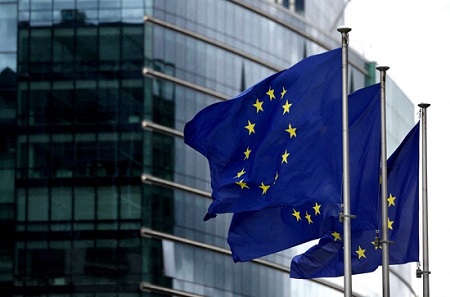EU Approves New Sanctions Package Against Russia
EU members have approved a 13th package of Ukraine-related sanctions against Russia, banning nearly 200 entities and individuals accused of helping Moscow procure weapons or of involvement in kidnapping Ukrainian children.
“EU Ambassadors just agreed in principle on a 13th package of sanctions in the framework of Russia’s aggression against Ukraine,” Belgium, which holds the rotating EU presidency, said on social media platform X, calling it “one of the broadest approved by the EU”.
The new package will see 193 entities and individuals added to the list of those banned from traveling to the EU or doing business there, but no fresh measures against specific economic sectors, EU diplomatic sources said.
The sources said the focus of the listings is roughly split between entities and individuals that are part of Russia’s military-industrial complex and those involved in trafficking and kidnapping Ukrainian children. One North Korean and one Belarusian firm were also added, the sources said.
The chief prosecutor of the International Criminal Court said last March that Russia had transferred “at least hundreds” of children from orphanages and care homes in occupied regions of Ukraine, and many have been given up for adoption.
Meanwhile, the ICC indicted officials including President Vladimir Putin for abducting Ukrainian children, which it called a war crime. Moscow denies any crime and says it has taken in children from the war zone to protect them. Ukraine says Russia has removed more than 4,000 children.
Report says the new measures also focus on the procurement network supporting Russia’s military, especially the supply chain to make drones. Twenty-seven companies were added to the Annex IV list, which means European firms cannot sell dual-use goods to them.
The companies added are mostly Russian and include three mainland Chinese firms and one Hong Kong-based company, the sources said.
The package will be formally approved in time for the second anniversary of the start of Russia’s invasion of Ukraine on February 24
REUTERS/Christopher Ojilere


Comments are closed.